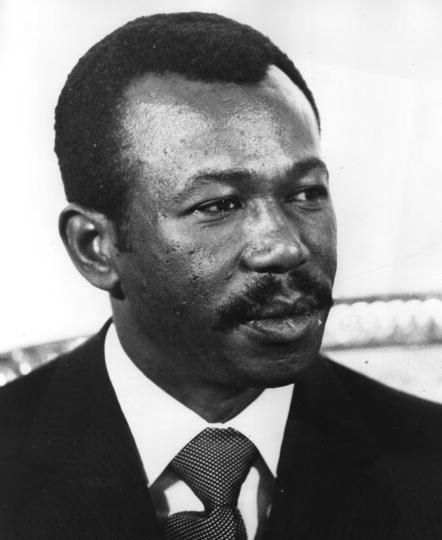Early Life
- Born on May 21, 1937, in Welayta, Ethiopia
- Raised in a household of modest means, with his father serving in the Ethiopian army
- Attended school in Debre Markos and later joined the army at a young age

Military Career
- Graduated from the Holetta Military Academy in 1957
- Received training in the US, including at the Aberdeen Proving Ground in Maryland and Fort Leavenworth in Kansas
- Rose through the ranks, becoming a key figure in the military
Rise to Power
- Played a crucial role in the Ethiopian Revolution, which overthrew Emperor Haile Selassie’s government in 1974
- Became a leading member of the Derg, a committee of low-ranking officers and enlisted soldiers
- Outmaneuvered other leaders, eventually becoming the chairman of the Derg and the de facto leader of Ethiopia

Presidency and Legacy
- Implemented Marxist-Leninist policies, including nationalization and land redistribution
- His presidency was marked by internal rebellion, government repression, and economic mismanagement
- The Red Terror, a brutal crackdown on opposition groups and civilians, resulted in an estimated 30,000 to 750,000 deaths
- Mengistu’s government was also criticized for its handling of the 1983-1985 famine, which led to widespread suffering and death
Exile and Current Status
- Fled to Zimbabwe in 1991 after the PDRE National Shengo dissolved itself
- Lives in Harare, Zimbabwe, despite being convicted of genocide in absentia by an Ethiopian court

Mengistu’s legacy is complex and contested, with some viewing him as a champion of social justice and others as a ruthless dictator responsible for immense human suffering.
His life and legacy are multifaceted, with various perspectives and impacts on Ethiopia’s history. Here’s a more detailed overview:
Early Life and Military Career
- Born in Welayta, Ethiopia, in 1937
- Joined the Ethiopian army at a young age and rose through the ranks
- Received military training in the US, which exposed him to new ideas and perspectives
Rise to Power
- Played a key role in the Ethiopian Revolution, which overthrew Emperor Haile Selassie’s government in 1974
- Became a leading figure in the Derg, a military junta that ruled Ethiopia
- Implemented Marxist-Leninist policies, aiming to modernize Ethiopia’s economy and society
Presidency and Policies
- Implemented land reform, nationalization of industries, and other socialist policies
- His presidency was marked by significant economic and social changes, including:
- Efforts to modernize agriculture and industry
- Expansion of education and healthcare
- Promotion of women’s rights and social equality
Controversies and Criticisms

- The Red Terror, a period of brutal repression and violence against opposition groups and civilians
- Human rights abuses, including forced labor, torture, and extrajudicial killings
- Economic mismanagement, which contributed to widespread poverty and famine
Legacy and Impact
- Mengistu’s legacy is complex and contested, with some viewing him as a champion of social justice and others as a ruthless dictator
- His policies had significant impacts on Ethiopia’s economy, society, and politics
- The country’s ongoing struggles with poverty, inequality, and human rights issues are, in part, a legacy of his rule
Current Status
- Lives in exile in Zimbabwe, where he has been granted asylum
- Convicted of genocide in absentia by an Ethiopian court, highlighting the ongoing debates and controversies surrounding his legacy



